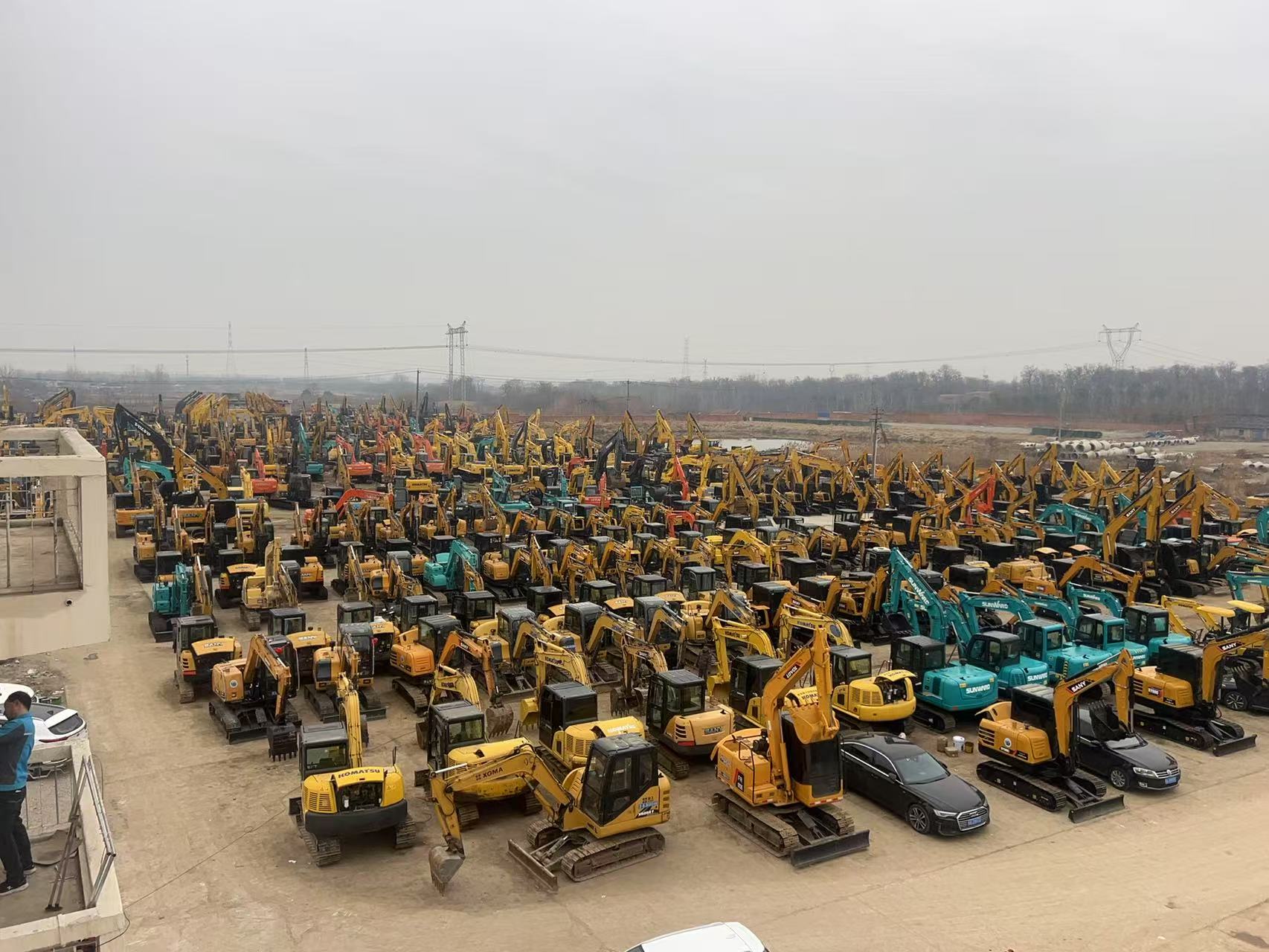Chinese excavator or Non-Chinese excavator?
Chinese and Non-Chinese excavators each have their own strengths and weaknesses, catering to different market demands and usage environments. Below is a comparison of the two:

Advantages of Chinese Excavators:
- High Cost-Performance Ratio
Chinese excavators are generally more affordable, offering better value for money. For companies or individuals with limited budgets, Chinese excavators are often a more economical choice. - Convenient After-Sales Service
Chinese brands like SANY, XCMG, and Zoomlion have a wide after-sales service network, providing timely repairs and parts supply. For users, after-sales support is easier to obtain and quicker to resolve issues. - Strong Adaptability
Chinese excavators are designed and manufactured to meet the specific needs and working conditions of the Chinese market. They are better suited to China’s geography, climate, and construction requirements. Chinese equipment tends to meet the demands of local engineering projects better than Non-Chinese alternatives. - Rapid Innovation and Technology Upgrades
Chinese excavator manufacturers have increased their investments in research and development in recent years. Chinese excavators' performance and technology are constantly improving and are gradually catching up with international brands in some areas. Some high-end Chinese excavators can now compete with Non-Chinese brands in terms of technology and functionality. - Government Support
The government offers substantial support to Chinese manufacturers, such as policy incentives and subsidies, which makes Chinese excavators more competitive in terms of price.
Disadvantages of Chinese Excavators:
- Technological Gap
Although Chinese excavators are improving, there is still a technological gap compared to high-end Non-Chinese brands like Caterpillar, Hitachi, and Volvo. For example, Non-Chinese brands often have more mature technologies in areas like engine systems, hydraulic systems, and fuel efficiency. - Lower Brand Recognition
Compared to international brands, Chinese excavators have lower brand recognition and influence in global markets. In some overseas markets, international brands have a stronger user base, and expanding the market for Chinese brands abroad remains a challenge. - Quality Control Issues
Some Chinese excavators, especially those from smaller manufacturers or lower-end brands, may have inconsistent manufacturing quality and stability. Some models may experience more breakdowns after extended use.
Advantages of Non-Chinese Excavators:
- Mature Technology
International brands like Caterpillar, Hitachi, and Volvo have decades of accumulated research and development. Their excavators feature mature technology and perform excellently in areas like fuel efficiency, power systems, hydraulic systems, and control. These machines are especially well-suited for high-demand working environments. - High Reliability and Durability
Non-Chinese brand excavators are known for their reliability and durability, capable of working for extended periods under harsh conditions. This is particularly important for high-intensity and high-efficiency projects. - Global Brand Influence
Non-Chinese brands typically have higher global brand recognition and influence. Many overseas customers trust these brands. Due to their global presence, these brands also have a more stable used market and resale value. - Advanced Technology and Features
International brands invest heavily in advanced technologies such as automation, smart systems, and environmental protection. For example, Volvo’s "Smart Operation" system and Caterpillar’s remote monitoring systems enhance work efficiency and safety.
Disadvantages of Non-Chinese Excavators:
- Higher Price
Non-Chinese excavators are usually more expensive, especially for new machines. The price difference can be significant, which may not be suitable for customers with limited budgets. - More Complex After-Sales Service
While international brands have been establishing after-sales service networks in China, they are not as widespread as Chinese brands. In remote areas, getting maintenance and parts for Non-Chinese brands may take longer and be more expensive. - Adaptability Issues
Although international excavators perform well globally, they may not be as flexible in meeting specific Chinese market needs. For certain Chinese projects, Non-Chinese equipment may not adapt as well as local brands.
Conclusion:
Choosing between Chinese and Non-Chinese excavators depends on various factors such as project requirements, budget, and after-sales support. If you have a tight budget, prioritize cost-effectiveness, and will mostly be working Chineseally, Chinese excavators are a great choice. However, if you need higher technological standards, reliability, and durability, and are willing to pay a premium, Non-Chinese-brand excavators may be more suitable.